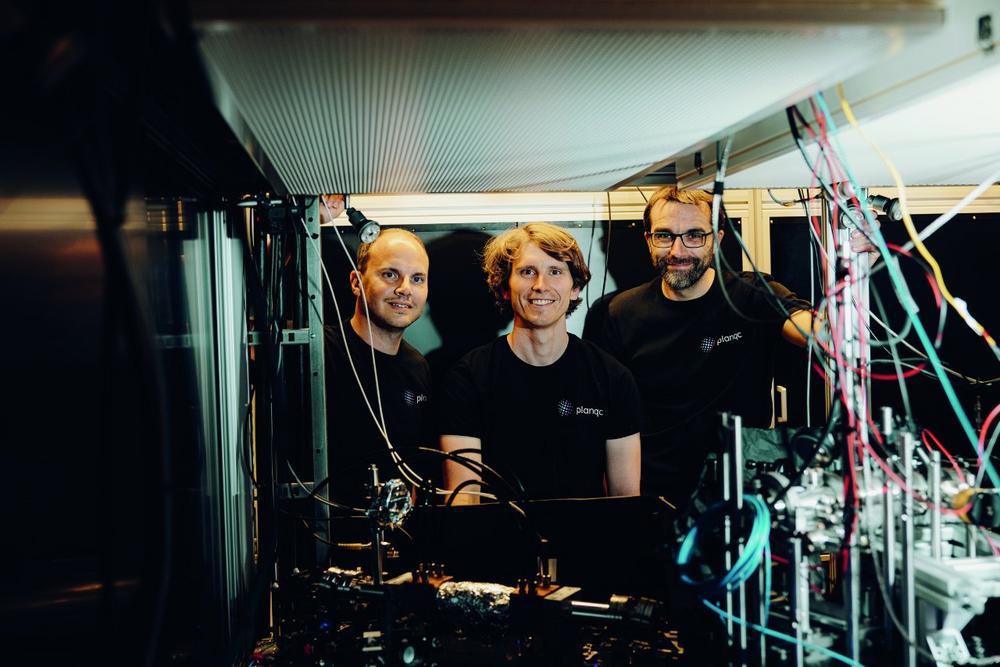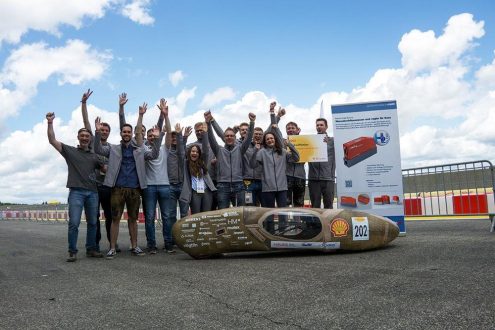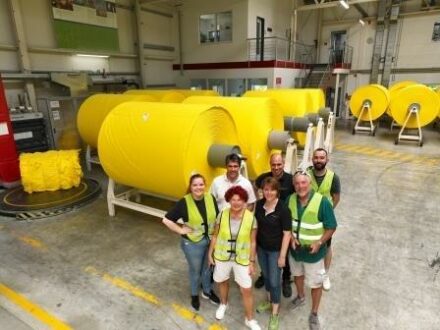
planqc sells the first digital quantum computer based on neutral atoms in Europe
planqc teams up with Menlo Systems and ParityQC who provide critical components for the laser systems and the software architecture. This is the first sale of a digital quantum computer based on neutral atoms in Europe. The award comes at a time of impressive growth for the company and follows the appointment of Hermann Hauser as board advisor.
planqc – Europe’s leader for digital quantum processors based on neutral atoms – has prevailed in a Europe-wide competition and has now been commissioned to build and install a quantum processor using ultracold atoms in optical lattices at the DLR Innovation Center in Ulm (Germany). The system will be scalable and will be integrated into DLR’s quantum computing stack as part of the DLW Quantum Computing Initiative (DLR QCI).
This order is an important milestone in our commercialization and growth strategy, which envisages expanding into other key industries and opening up global markets as a next step,
says Alexander Glätzle, CEO and co-founder of planqc
We are not only excited to install the first quantum computer based on neutral atoms at DLR, but we also want to collaborate closely with DLR experts to run quantum algorithms on it that will have a real impact on DLR’s many fields of application,
adds Sebastian Blatt, CTO and Co-Founder of planqc.
Quantum computers are a ground-breaking technology that will in the future allow to carry out calculations and simulations in specific areas of application much faster than on classical supercomputers. They can be used, for example, for designing new materials or drugs, or solving complex problems in the transport and energy or the financial sector. Quantum computers use the quantum-mechanical effects of entanglement and superposition: Their quantum bits (qubits) can assume the states 0 and 1 at the same time – and not just one after the other, like classical computers. This in turn makes quantum computers so powerful.
The problem areas identified by DLR include quantum materials, quantum machine learning, optimization of satellites, and the simulation of chemical reactions for the development of more efficient battery systems. Through its own research activities, DLR has a clear need for the future use of quantum computers in all its priority areas such as aerospace, energy, transport, security, and digitization.
To kick-start the joint development and to leverage synergies with DLR, planqc will have a dedicated lab and office space at the DLR Innovation Center in Ulm.
Diversity is an important feature of the DLR Quantum Computing Initiative. The QCI pursues different technological approaches to investigate their respective advantages and disadvantages.
With this project, we are adding another promising technology to our quantum computer portfolio at the Ulm site,
says Dr. Karla Loida, Hardware Lead for the QCI.
In order for the neutral atoms to become qubits, they must first be trapped and confined in a vacuum by laser beams,
says Dr. Robert Axmann, Head of the DLR Quantum Computing Initiative (QCI).
The atoms are then arranged in a regular manner, similar to an egg carton, and can be manipulated with lasers. This is how arrays of qubits are created.
To have two qubits interact with each other, the atoms are excited into so-called Rydberg states. Without an interaction or entanglement between qubits, quantum computers do not work,
explains Robert Axmann.
The start-up planqc was founded in April 2022 in Garching near Munich (Germany). The founding team builds on decades of groundbreaking research and technology development at Munich’s Max Planck Institute of Quantum Optics (MPQ). Using optical lattices, a technology pioneered in Munich, already today thousands of atoms can be trapped in a standing wave light pattern formed by a single laser beam. Quantum information is stored in electronic states of strontium atoms, the very same states that are used to build the world’s best atomic clocks due to their extraordinarily long coherence times. This unique combination of quantum technologies has the potential to be one of the fastest ways to scale to thousands of qubits with superior gate fidelity, a prerequisite for industry-relevant quantum advantage.
Das Gründerzentrum auf dem Forschungscampus in Garching bei München bietet heute rund 50 Startups Infrastruktur auf dem neuesten Stand der Technik. Die gate-Startups skalieren dank der erweiterbaren Büros in direkter Nachbarschaft zur Technischen Universität München, unterstützt von professioneller Beratung und Coaching. Gefördert vom Freistaat Bayern hat das gate seit der Gründung im Jahr 2002 bereits mehr als 300 Unternehmen zum Erfolg verholfen. Das „gate to success“ eben.
gate Garchinger Technologie- und Gründerzentrum GmbH
Lichtenbergstraße 8
85748 Garching bei München
Telefon: +49 (89) 5484-0
Telefax: +49 (89) 5484-1010
http://www.gategarching.com
Marketing & Communications
Telefon: +49 (0) 89 / 5484 1115
E-Mail: elena.peter@gategarching.com
![]()



